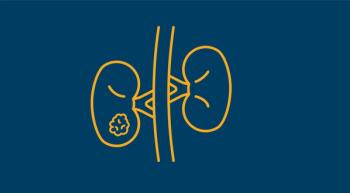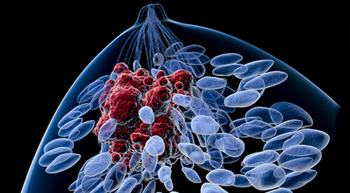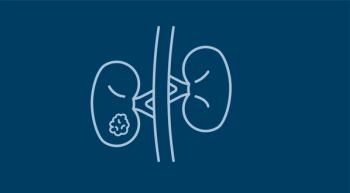
Each month, we take a look back at the most popular Oncology Nursing News® stories. Here are the top 5 stories from September 2022.

Each month, we take a look back at the most popular Oncology Nursing News® stories. Here are the top 5 stories from September 2022.

The FDA has approved sodium thiosulfate to protect the hearing of pediatric patients who are at least 1 year old and are receiving cisplatin-based treatments.

Mary Anderson, BSN, RN, OCN; and Christina Bach, MBE, MSW, LCSW, OSW-C, FAOSW, discuss approaches to help patients navigate financial toxicity and insurance coverage in the age of oral anticancer drugs.

Neoadjuvant cemiplimab elicited promising pathologic complete responses in patients with cutaneous squamous cell carcinoma.

ASCO has released new guidelines concerning the optimal treatment of patients with metastatic clear cell renal cell carcinoma following a systematic literature review by an expert panel.

Milagros Elia, MA, APRN, ANP-BC, discusses ways that nurses can advocate for their patients and help them manage health-related symptoms in the context of changing local environments.

On September 22 and 23, 2022, the FDA’s Oncologic Drugs Advisory Committee (ODAC) convened for a hearing to assess the risk-benefit ratio of 3 agents.

Selpercatinib was approved by the FDA for RET fusion–positive non–small cell lung cancer and locally advanced or metastatic RET fusion–positive solid tumors.

For patients receiving an aromatase inhibitor for hormone receptor–positive, HER2-negative breast cancer, the addition of abemaciclib doubled median progression-free survival vs placebo.

Sotorasib doubled the progression-free survival rate in patients with KRAS G12C–mutated non–small cell lung cancer.

Debi Fischer, MSW, BSN, BA, LCSW, RN, discusses the launch of the Florida Cancer Connect program and what this initiative represents for patients across the United States.

Patients with hepatocellular carcinoma achieved a median overall survival of 15.9 months with tislelizumab and 14.1 months with sorafenib.

The FDA has approved eflapegrastim to treat febrile neutropenia. The agent should be administered 24 hours following cytotoxic chemotherapy. It comes with warnings for fatal splenic rupture, acute respiratory distress syndrome, sickle cell crisis, glomerulonephritis, leukocytosis, thrombocytopenia, and myelodysplastic syndrome.

In a real-world analysis of patients with hepatocellular carcinoma, the median overall survival with lenvatinib was 9.7 months in the low-dose group and 7.6 months in the recommended-dose group.

In a presentation at the 2022 Oncology Nursing Society Bridge, Stephany L. Rodriguez, RN, MS, NP, discussed the later effects associated with hematopoietic stem cell transplant and how to manage them.

Kristin Daly, MSN, ANP-BC, AOCNP, discusses the clinical significance of tumor variants and how they are changing the direction of cancer care.

At a median follow-up of 33.0 months, the median progression-free survival with tumor-infiltrating lymphocyte therapy was 7.2 months vs 3.1 months with ipilimumab.

Results of retrospective analysis of previously treated patients with metastatic renal cell carcinoma who received nivolumab in the second- and third-line showed that health-related quality of life was maintained in the real-world setting

Real-world data from a retrospective study showed that pembrolizumab combined with the anti-VEGF agent bevacizumab plus oral metronomic cyclophosphamide displayed minimal toxicity in a significant number of patients with recurrent epithelial ovarian, fallopian tube, or primary peritoneal cancer.

The rate of event-free survival associated with pembrolizumab was significantly higher among patients with high-risk melanoma about to undergo surgery than among those who received immunotherapy following surgery.

After 10 months of follow-up, the confirmed objective response rate among patients with metastatic gastric cancer or gastroesophageal junction adenocarcinoma who received trastuzumab deruxtecan was 41.8%.

Karen Hande, PhD(c), DNP, ANP-BC, CNE, FAANP, ANEF, explains the difference between some of the popular cannabinoid products that patients with cancer may be taking.

A multicentre, retrospective study showed that treatment-related adverse effects associated with atezolizumab plus bevacizumab were prognostic of improvements in survival outcomes in patients with hepatocellular carcinoma.

In this episode of “The Vitals,” Christine Miaskowski, PhD, RN, discusses research showcasing that adult patients receiving either a platinum-based chemotherapy, taxane alone, or a combined regimen of platinum- and taxane-based treatment may be at risk of hearing loss.

Patients with relapsed or refractory metastatic colorectal cancer who received dose-optimized regorafenib achieved superior survival outcomes than those who received best supportive care, fruquintinib, standard-dose regorafenib, and trifluridine/tipiracil.

Kelly Goodwin, MSN, RN, ANP-BC, discusses the significance of the recent FDA approvals of capmatinib and trastuzumab deruxtecan for patients with non–small cell lung cancer.

Innovative strategies are needed to ensure that adolescents and young adults with cancer who prefer to die at home are able to make that choice.

Neoadjuvant immunotherapy starkly outperformed neoadjuvant chemotherapy in eliciting major pathological responses among patients with mismatch repair–deficient colon cancer, according to investigators.

The relapse-free survival rate was 22.3% among patients with resectable stage IIIB to IV M1a melanoma who received neoadjuvant talimogene laherparepvec versus 15.2% among those who received surgery alone.

Patients with triple-negative breast cancer who received pembrolizumab in the neoadjuvant and adjuvant settings demonstrated similar health-related quality-of-life scores compared with patients who received placebo.